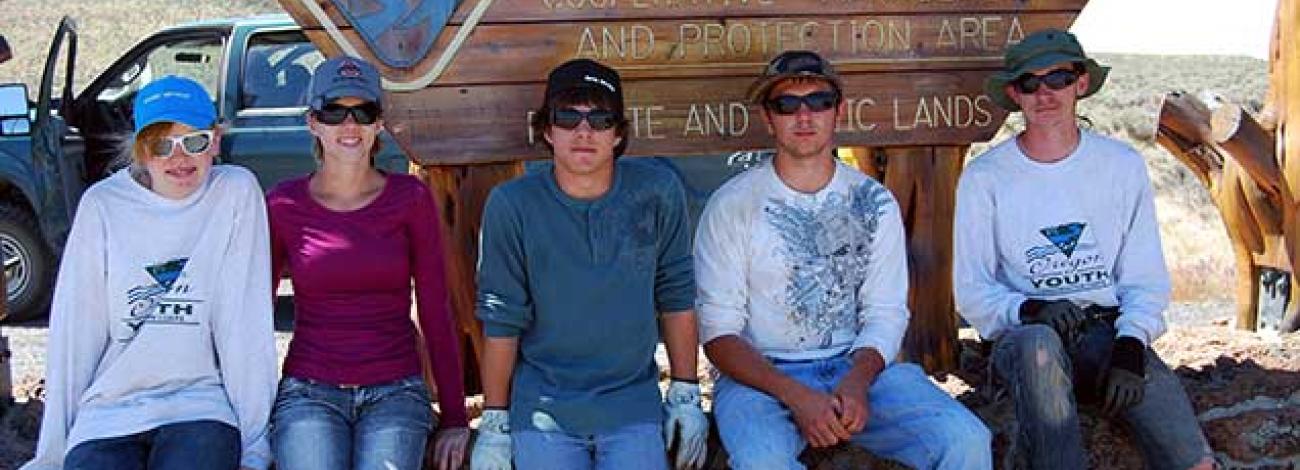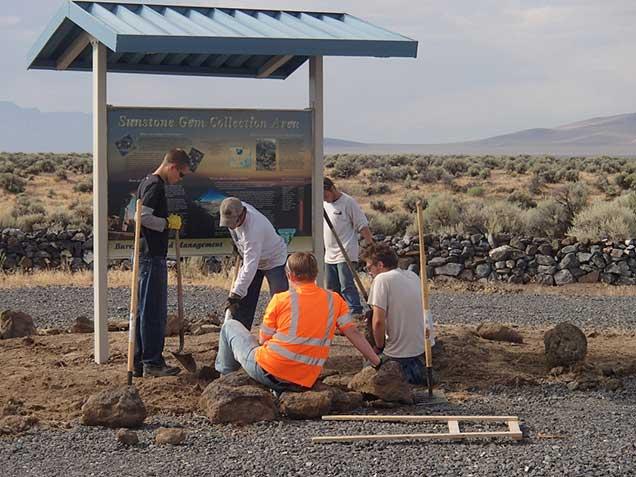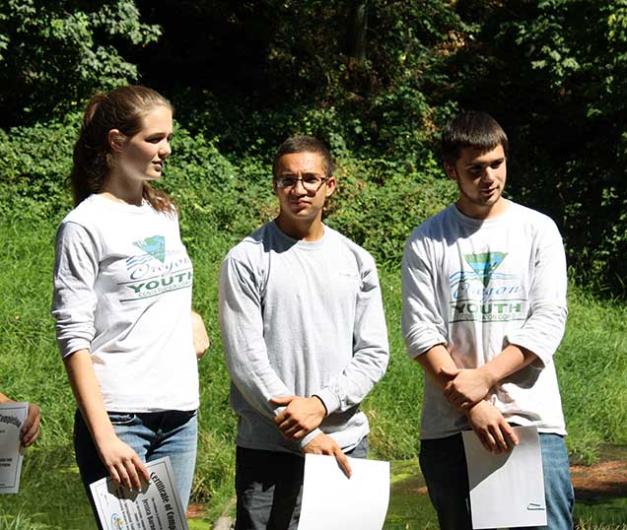
Oregon/Washington Partnerships
BLM Oregon/Washington continues to place an emphasis on seeking and strategically utilizing partnerships to enhance the agency’s capacity to manage public lands and deliver services for the American people. Partnerships have proven to be an effective means of leveraging resources among cooperating organizations, improving working relationships, fostering trust, and recruiting a future workforce. By working collaboratively we can achieve land management goals that meet both the urban and rural community needs to promote healthy forest stands, reduce fire hazards, and restore watershed health. The BLM Oregon-Washington currently has numerous partnerships, some of which are informal while others are formalized by means of Memoranda of Understanding, Assistance Agreements, and/or Cooperative Management Agreements. Most of these agreements fall in the natural resources arena, but they also exist in other program areas such as environmental education, records, and personnel.
Oregon Youth Conservation Corps Building Strong Connections
Investing in America’s youth continues today as a national priority. To develop the next generation of lifelong conservation stewards and ensure our own skilled and diverse workforce pipeline, BLM Oregon-Washington has partnered with the Oregon Youth Conservation Corps (OYCC), providing hundreds of work & training opportunities to young people across the state. The Oregon Legislature established the OYCC in 1987 to emulate the Civilian Conservation Corps of the 1930s and to provide a program to increase education, training and employment opportunities for Oregon youth. The OYCC is housed within the State of Oregon Office of Community Colleges and Workforce Development under the Higher Education Coordinating Commission. The OYCC provides grants to local youth corps providers to run youth programs across the state serving individuals ages 13-24. They also serve as a valuable resource for program development, technical assistance, networking with other youth programs, and facilitating assistance in developing educational, service and work projects with organizations such as the BLM.
In 2010, we entered into a cooperative agreement with OYCC to create The Employment and Education Partnership (EEP). Through this partnership, OYCC has connected BLM project opportunities with youth conservation corps operating throughout Oregon, including school, tribal, youth offender, and nonprofit organization crews. All youth participants must be Oregon residents and at least 75 percent must meet the disadvantaged and at-risk requirement, specifically targeting “those who may be unable to achieve the educational, economic, or social expectations of their community.” Through the EEP, we have: granted over $1.2 million to the field with $995,000 going directly to youth wages (nearly 80 percent); received nearly $572,000 in matches at the local level; employed nearly 900 youth (with over 2,000 applications); and conducted over 114,000 hours of project work benefitting public lands and resources. Working together, BLM OR-WA and OYCC employ local youth in each of Oregon’s 36 counties – building strong connections between positive work experiences, work skills, personal responsibility, commitment to education, and future employment for Oregon’s youth. As part of this effort, youth programs have become an essential means of needed assistance to protect, conserve, rehabilitate and improve the natural, historical and cultural resources of our public lands across the state. Each summer, youth work crews can be seen completing projects such as trail construction and maintenance, landscaping, planting, wetlands and stream bank restoration, invasive species removal, construction, gardening and greenhouse projects. "I love that all of the projects are hands on and you get to learn something new every day," said one recent program participant. This partnership has proven to be effective in significantly expanding work opportunities for youth on public lands. Together, we are achieving the national goals of developing the next generation of lifelong conservation stewards and ensuring our own skilled and diverse workforce pipeline.


